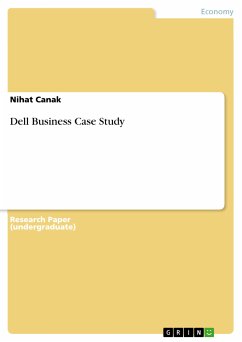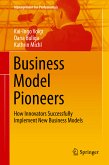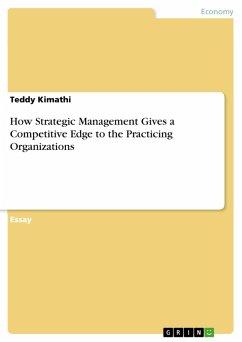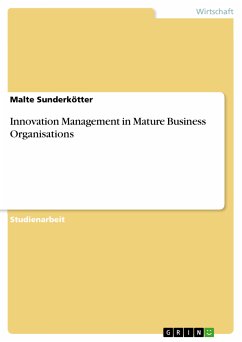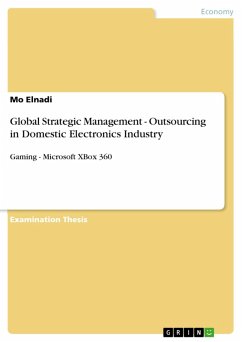Research Paper (undergraduate) from the year 2006 in the subject Business economics - Offline Marketing and Online Marketing, grade: 1.0, Western Carolina University, course: Marketing Management & Mature Consumers, language: English, abstract: Michael Dell founded Dell Computer in 1984. At the time he was only 19 years old, and in his first year of studies at the University of Texas in Austin. Michael Dell had a simple but powerful vision: that personal computers could be built to order and sold directly to customers. This followed from his belief that the PC, made up of little more than software from Microsoft and chips from Intel, was rapidly becoming a commodity product. Dell's new approach to the PC business had two advantages: (1) bypassing distributors and retail dealers reduced marketing and sales costs by eliminating the markups of resellers, and (2) building to order greatly reduced the costs and risks associated with carrying large volumes of both and finished goods. Michael Dell started his company with only US$ 1,000 of capital. DellComputer experienced its share of difficulties in the first few years, to the point where some family members and friends wondered whether it had been wise for Michael to drop out of university. Several times it had to refine its strategy even as it was implementing it. The company started off by using the direct sales model for upgraded versions of IBM-compatible PCs. However, within a year it was selling its own brands of PCs. Most of Dell's customers in the 1980s were hobbyists and experienced PC consumers. Not surprisingly, Dell Computer was an early and enthusiastic convert to the Internet. It gained a first-mover advantage by setting up its first Web site in 1994, a year in which its total revenues were US$ 3.5 billion. By 1998, its Internet sales accounted for more than half of the firm's total revenues, which by then had surged to more than US$ 20 billion. At that point, Michael Dell had joined Bill Gates of Microsoft and Larry Ellison of Oracle among those who had become high-technology billionaires after dropping out of university. Michael Dell believes that his biggest challenge now is to have his company's direct business model as widely accepted outside the United States as it is across Dell's home market. He sees a need for aggressive marketing activities to develop customer trust and some modification of the basic model to account for institutional weaknesses and cultural differences in places like China and India. Michael Dell does not seem to be particularly concerned about the efforts of competitors to duplicate his build-to-order business model: [...]
Bitte wählen Sie Ihr Anliegen aus.
Rechnungen
Retourenschein anfordern
Bestellstatus
Storno

